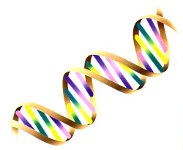There is an expectation (hope) from many that science will provide a technological solution to many if not all of the world’s big problems, whether it be global warming, world food demands, disease, world energy demands.
However, developing a technological solution is only half the battle. The adoption of that technology has to be compatible with our current economic model(s). This is no more evident right now than in the field of solar power where providers are being taxed for adopting the new cleaner , greener, more `sustainable’ form of power generation. It’s been happening overseas for some time now in countries like Spain, Germany and some states in USA and hits the headlines here in NZ in the last couple of weeks.
What is the reasoning for these new taxes? Are they justified? What are the implications if they are? What do we do if they are not?
Below are 5 links to articles to help you make your own mind up.
Link 1 From Reuters News will give you an overview of what is going on overseas.
Links 2 is from the NZ Green Party
Link 3 is from Greenpeace
Links 4 is from National Business Review
Link 5 from NZ HERALD
Have a read and make up your own minds
Is there a problem with the technology at play, our economic model, or both? How might we address the issues?
Would love to hear your feedback
Links:




 This achievement standard
This achievement standard 


Recent Comments